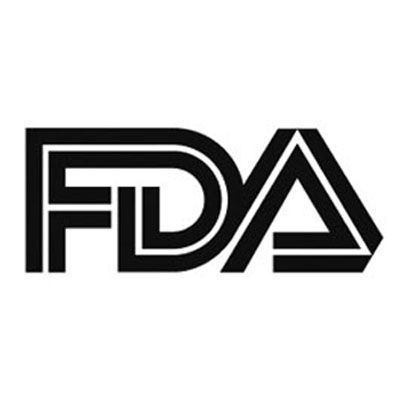FDA Halts NEON-2 Study of Davoceticept/Pembrolizumab in Adults With Advanced Cancers
A partial clinical hold has been placed the NEON-2 trial by the FDA due to a concern with the safety of davoceticept used in combination with pembrolizumab to treat patients with advanced solid tumors.

The FDA has placed a partial clinical hold on the NEON-2 trial, which was evaluating treatment with davoceticept (ALPN-202) in combination with pembrolizumab (Keytruda) in adult patients with advanced malignancies, according to a press release by Alpine Immune Sciences, Inc.
A grade 5 serious adverse event leading to a patient’s death is the reason for the FDA’s partial clinical hold. The patient reportedly had choroidal melanoma and received prior treatment with nivolumab (Opdivo) and ipilimumab (Yervoy). In the NEON-2 study, the patients received a single dose of both davoceticept and pembrolizumab, and later died as a result of cardiogenic shock. The investigators believed the AE was possibly related to immune-mediated myocarditis, or infection.
"Patient safety remains, as always, our top priority," said Mitchell H. Gold, executive chairman and chief executive officer of Alpine, in a press release. "We appreciate the dialogue with FDA and look forward to working diligently with FDA, Merck, the study Safety Monitoring Committee, and the study investigators to further understand this unfortunate event. Given the strong scientific rationale for the combination of davoceticept and pembrolizumab to benefit treatment-refractory patients, we are hopeful that the study will soon be resumed after appropriate safety review, and with appropriate safety precautions in place."
In the open-label NEON-2 trial (NCT04920383), a total of 323 patients with advanced solid tumors or lymphoma will be assessed for the primary end point of AEs, and the secondary end point of objective response.
Eligible patients are those who are 18 years of age or older with a pathologically confirmed solid tumor that is locally advanced or metastatic and unresectable, or Hodgkin/non-Hodgkin lymphoma. To enroll, patients with lymphoma must have received ≥ 2 prior systemic anti-cancer therapies, and all patients are required to have available tumor biopsy representative of current disease, an ECOG performance status grade 0-1, and a life expectancy of ≥ 3 months. Patients must also have recovered from any prior toxicity to a grade 1 or lower, and have adequate baseline hematologic, renal, and hepatic function.
Patients are excluded from the study if they have any history of ≥ grade 3 immune-related AEs, active or prior pneumonitis or interstitial lung disease, presence of any active central nervous system metastases, and other health condition that may interfere with study treatment. In terms of treatment history, the study does not allow enrollment of patients who have received prior organ allograft or allogeneic hematopoietic stem cell transplantation, PD-L! inhibitors, immune checkpoint inhibitors including CTLA-4 inhibitors within 4 weeks of the start of the study, chemotherapy within 2 weeks, and monoclonal antibodies, antibody-drug conjugates, bispecific antibodies, antibody-like drugs, cytokines, cell therapies, or radioimmunoconjugates within 4 weeks.
Before the study was halted, patients who met the criteria were being actively recruited at sites in Massachusetts, Michigan, Tennessee, and Texas.
All patients that are currently enrolled in the study are permitted to continue treatment with
davoceticept and pembrolizumab, but no additional patients may be enrolled until the partial clinical hold is lifted. The partial clinical hold does not impact the ongoing NEON-1 clinical trial of davoceticept as monotherapy in patients with advanced malignancies (NCT04186637).
REFERENCES:
1. Alpine Immune Sciences reports FDA partial clinical hold on NEON-2 trial of davoceticept (alpn-202) in combination with pembrolizumab. News release. Alpine Immune Sciences. March 8, 2022, Accessed March 8, 2022. https://bit.ly/35AeXVx
2. ALPN-202 with PD-1 inhibition in advanced malignancies (neon-2). Clinicaltrials.gov. Accessed March 8, 2022. https://bit.ly/3CmUQ9f
Amivantamab/Lazertinib Shows OS and PFS Benefits in EGFR-Mutated NSCLC
April 21st 2025During a live event, Xiuning Le, MD, PhD, discussed updated intracranial efficacy, overall survival, and safety of amivantamab plus lazertinib in patients with EGFR-mutated non–small cell lung cancer.
Read More










